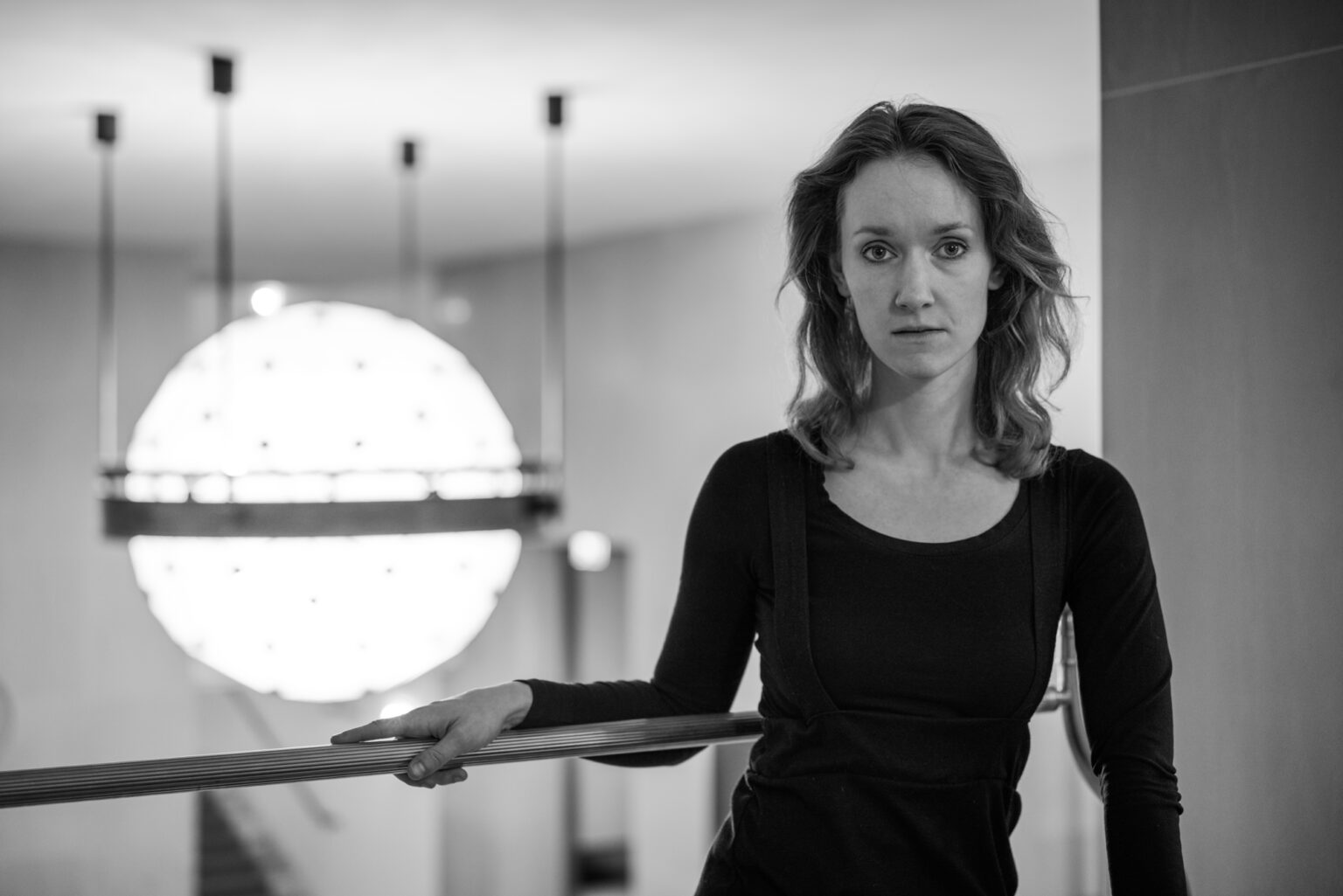Why inspiration for new pieces is sometimes a rather “startled inhale” and which she considers the most pressing issues of our time SCHÖNER WOHNEN text writer and director Amy Stebbins reveals in this interview:
How did SCHÖNER WOHNEN come about? Was there first the text, which was then set to music? Or did you develop the text together with the composer?
A.S.: Well, the “piece” is not finished until after the premiere, because it is of course much more than the sum of text and music. Now we have five weeks of musical and scenic rehearsals ahead of us. This work, the collaboration with the actors, is just as essential for the creation of SCHÖNER WOHNEN as the work at the desk beforehand. Originally, before the pandemic, there were actually three phases planned: First a joint improvisation phase, two weeks with a full cast to try out situations, dialogues, language and music, then an intensive writing phase in which John (Sir Henry, the composer, editor’s note) and I wanted to withdraw, and then four weeks of final rehearsals. Now the virus has really shaken us up, and so we agreed that I would bring a kind of prototypical libretto, a protoscript, a dramaturgical framework to the rehearsals, on the basis of which John would prepare musical material. From here, we set off into a rehearsal period characterized by improvisation.
What is your working method when dealing with a fabric? Where do you find inspiration?
A.S.: The “inspiration” actually comes from “breathing in”: Most of the time it’s a startled breathing in, because you’re supposed to be interested in this piece now, because the artistic director unfortunately had an idea (theater directors like to think of themselves as meta-artists). It is a stroke of luck when, as here in Neukölln, the artistic directors really ask what the artists are burning for. That made me very happy here.
As your CV shows, you are always interested in current topics and developments. Which topics do you consider to be the most important at the moment?
A.S.: Art is not always a good tool for solving the most urgent problems. After all, if the house is on fire, you call the fire department and not the opera director. The majority of people would probably say that climate change is the most pressing global threat of our time. But direct political work is guaranteed to be more effective than art in averting the climate catastrophe. However, the “essential” is not always the “acute”: art makes relationships tangible, those between people, social relationships: Mechanisms of the exercise of power, of violence too, our dealings with lusts. And this “making tangible” is able to trigger sensual understanding, which then perhaps becomes the prerequisite for action, for political action. The “essential” of our time? That is then rather the breaking away of the growth-oriented conception of the future of the West. The loss of a narrative of progress common to all. The implosion of linear historicity. Something like that would perhaps be the “essence”. This is then expressed in the various crises. Of course, this sounds much more theoretical than if I were to say “species extinction” or “right-wing populism.
Can you characterize and describe the nature of your directorial work with the actors?
A.S.: The work is always different because it’s always different actors. I’m really looking forward to Daniel Sellier and Claudia Renner, because we’ve never worked together before. And because we’re much more flexible here, unlike, say, a large cast opera, the performers, John and I can come together in a much more collaborative way. I think this is first very much about making offers to each other. And then we will come to an agreement.
What were and are the most important stations on your artistic and personal path?
A.S.: My time as a guest student and assistant at the Volksbühne was absolutely the most formative time. In Germany, people very much underestimate the difference between German and U.S. theater culture. At Rosa-Luxemburg-Platz, with the staff there, that’s where I learned theater.
What is particularly close to your heart artistically?
A.S.: The activation of a historical consciousness. Otherwise, we will continue to perpetuate our catastrophic past. That’s why “individual fates” are boring, even dangerous, for the theater. Because they distract, produce fake actuality. Please, no church, no private confessions and identity-political rosary prayers on stage. And then: take the audience seriously. They came especially for us, give us their time, their attention. Far too much new music theater in Germany is not interested in its audience, but in the bellybutton of its authors.
What other projects will you be tackling this year?
A.S.: I’m shooting a short film for the Tonhalle Düsseldorf, together with the media artist Lukas Rehm and the composer Hauke Berheide, then I’m staging a world premiere in Hildesheim. The libretto there is not mine – I’ve never staged anything like it before… After that, I still have a long writing phase with two world premieres for 2024.
The premiere of SCHÖNER WOHNEN is on May 16, 2022.
The interview was conducted by Magdalena Weidauer. In printed form, the text appeared in March 2022 in NoWumm, the member newspaper of the Neuköllner Oper e. V.
